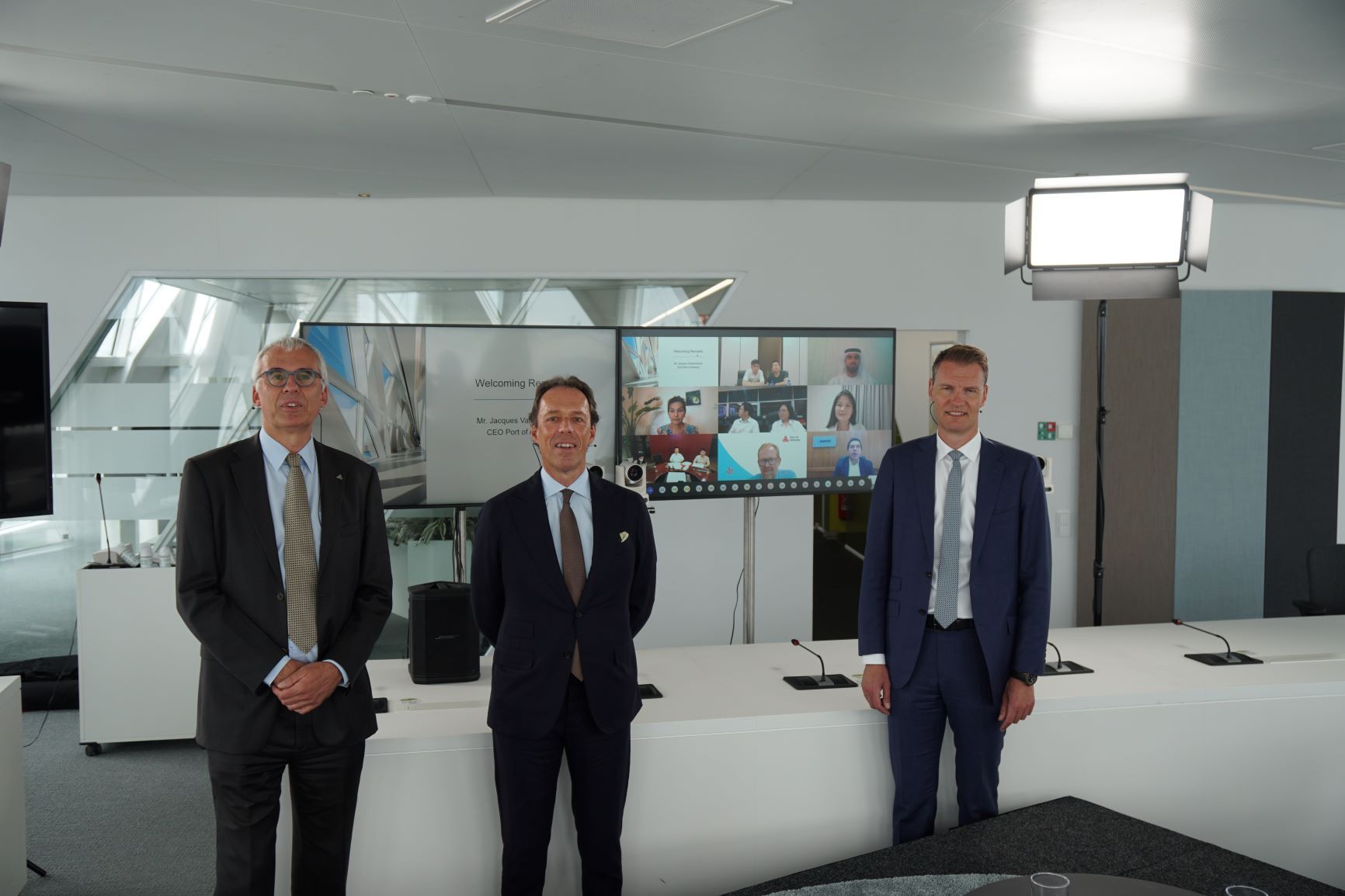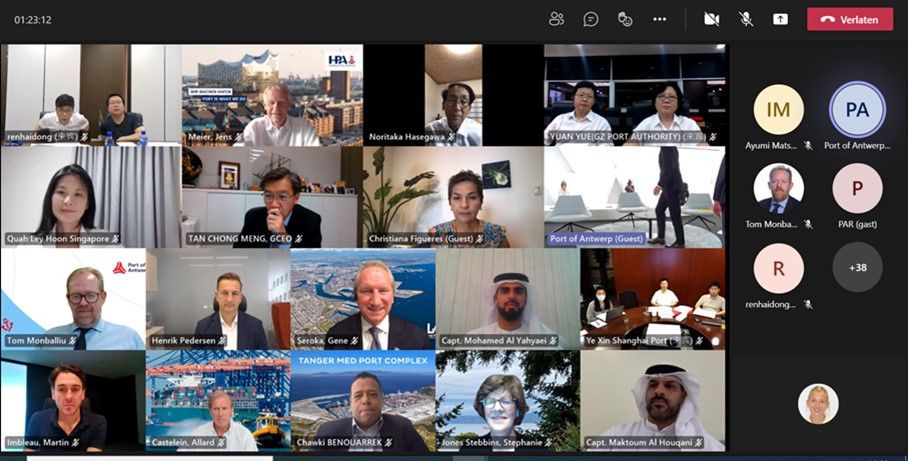6th Port Authorities Roundtable strengthens role of ports as levers for change
Ports agree to action points in field of disruption, digitalization and decarbonization
June 23, 2021 - Organized by the Port of Antwerp, the 6th edition of the Port Authorities Roundtable brought together 19 port authorities from major ports around the world to share insights and best practices and explore areas of collaboration. The two-day virtual roundtable event focused on the role of ports in the global supply chain and their levering function to impact energy transition, climate change and the digital evolution. High level discussions on disruption, digitalization and decarbonization resulted in concrete action points.

Ports as levers for change
Shipping is a global business with increasing challenges. To stay ahead, port authorities must keep abreast of industry trends and closely collaborate to develop innovative solutions in tackling these challenges. During the past two days, the 6th edition of the Port Authorities Roundtable, PAR2021@Antwerp, was held virtually, after the 2020 edition had been postponed. The roundtable, which was initiated in 2015 on initiative of the Maritime Port Authority of Singapore, gathers world ports to engage in open sharing and discussion to address issues of common interests and seek mutually beneficial collaboration opportunities in today’s evolving maritime landscape. With this year’s theme being “Enhancing the impact of ports as levers for change”, the CEO’s of the ports of Abu Dhabi, Associated British Ports, Antwerp, Barcelona, Busan, Guangzhou, Hamburg, Klang, Kobe, Los Angeles, Long Beach, Montreal, , Ningbo, Rotterdam, Santos, Seattle, Shanghai, Singapore and Tanger Med discussed how to respond to and prepare for challenges and risks related to ports and shipping. In conclusion of the high-level discussions, the port authorities agreed to a number of concrete actions related to disruption, digitalization and decarbonization:
Disruption
The participating ports took stock of various initiatives related to the challenges posed by incidents, the unexpected circumstances they cause and their impact on port operations and crew changes. Ports acknowledge that the exchange of experiences and best practices among peers has helped to overcome the impact of the pandemic. Building on this forward leaning cooperation, the ports have agreed to further develop the PAR Incident Sharing Framework (PAR-ISF) enabling ports to report on a voluntary basis in a systematic and active way on incidents, and to establish a mechanism to enable consultation and dialogue in case of incidents and crisis. Port Authorities also expressed support for the Shipping Tripartite Alliance Resilience (STAR) Fund which brings together like-minded international partners from the industry, unions and governments to work with stakeholders in seafaring nations on solutions for safe crew changes.
Digitalization
Having noted that container shipping remains the world’s most sustainable means of transportation for global trade and the expected rise in container transport, ports have assessed the need for the establishment of a global and neutral platform, allowing multi modal comparison of container routes. Hereto a coalition of PAR ports will further explore the applicability of Port of Rotterdam’s Routescanner as a neutral platform for the visualization of container transport options and to further improve sustainable and cost-efficient global supply chains.
Ports were also updated on the Port Authorities CIO Cybersecurity Network (PACC-Net) to strengthen cyber resiliency and response through three key focus areas: information-sharing, project collaboration and education.
Decarbonization
For the discussions on the decarbonization of shipping, ports were joined by Global Optimism’s Mrs. Christiana Figueres, Mr. Tan Chong Meng, Group CEO of PSA International and Mr. Soren Toft, CEO of Mediterranean Shipping Company.
Following the discussion on the importance of the decarbonization of shipping and the role of ports to realize this aspiration, the Port Authorities Roundtable will explore support to the Global Maritime Forum’s Getting to Zero Coalition COP 26 call to action which aims to encourage governments, industry and global policy makers to realize zero emission vessels by 2030.
Port Authorities also considered and discussed other decarbonization initiatives, such as the establishment of MPA’s maritime decarbonization center to collaborate to reduce GHG emissions, implement identified decarbonization pathways and create new business opportunities.
The outcome of this meeting will be evaluated during the 2022 Port Authorities Roundtable meeting, hosted by Abu Dhabi Ports.
Jacques Vandermeiren, CEO Port of Antwerp:“In this rapidly changing world and evolving maritime landscape, we are all faced with huge challenges. As ports, we must take up our role as levers and leaders for change. I am very satisfied that the fruitful PAR discussions have led to concrete action points which will allow us to confirm this role. This roundtable has once more highlighted the importance of collaboration and communication between ports and the impacts ports have on a local, regional and international scale.”

Final_statement_Port_Authorites_Roundtable_2021
PDF 64 KB
